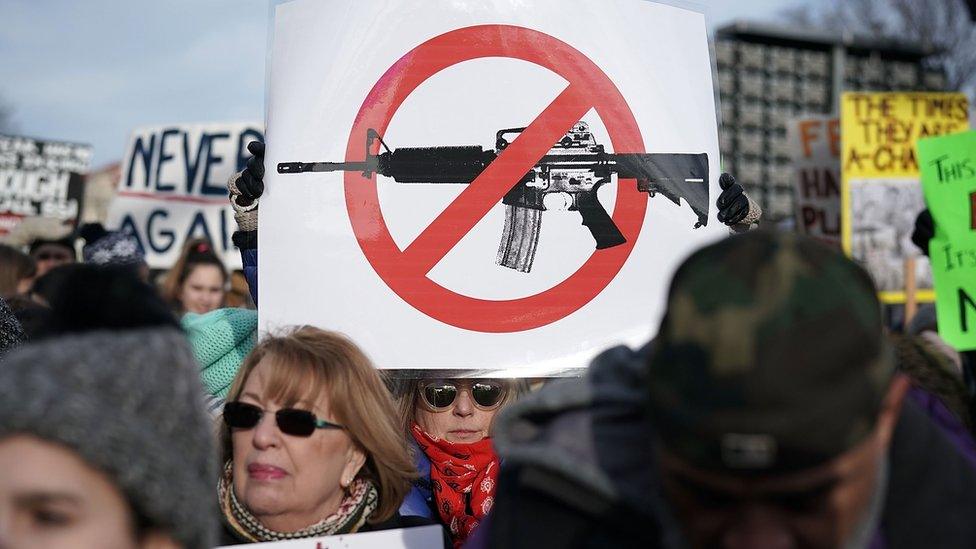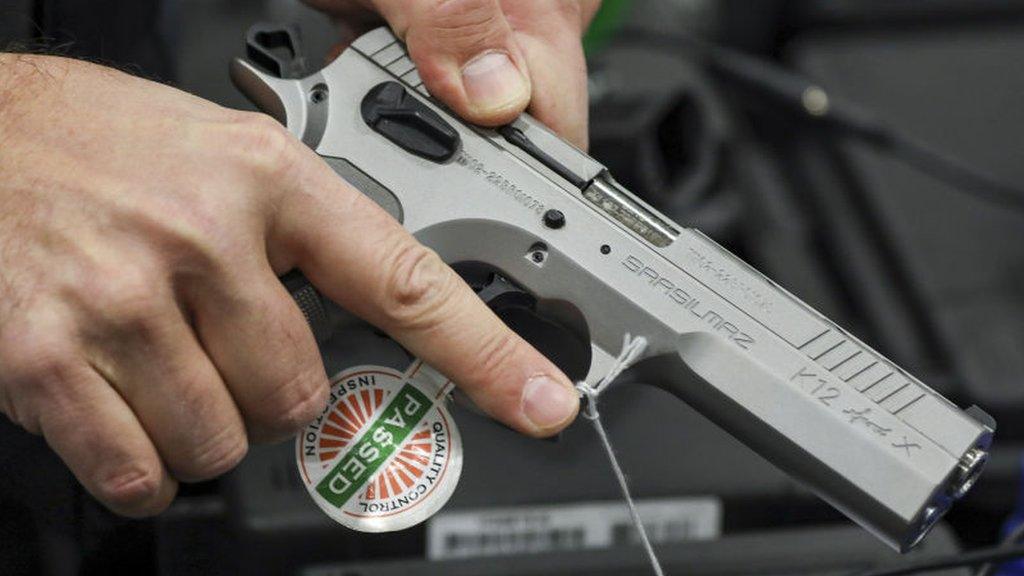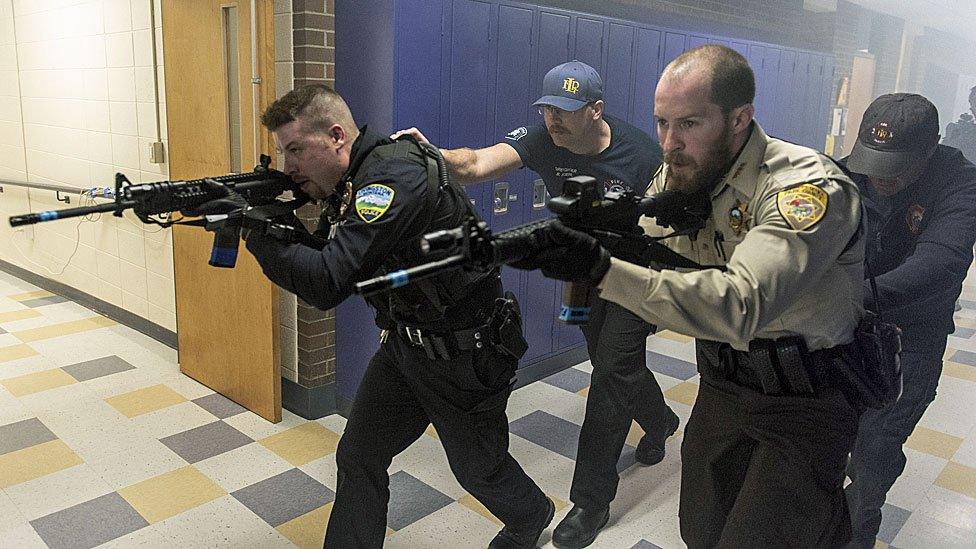US gun laws: House passes bill expanding background checks
- Published

Campaigners say there is strong public support for expanded checks on gun buyers
The US House of Representatives has approved a bill expanding background checks for all gun sales, including those at gun shows and on the internet.
The legislation is the most significant gun control measure to make progress in Congress in more than two decades.
The Democratic-controlled House passed it by 240 votes to 190. The bill is unlikely to be approved in the Senate, where Republicans have a majority.
President Donald Trump would also need to sign it for it to become law.
The White House said on Tuesday Mr Trump's advisers would recommend that he veto the bill, external as it would apply "burdensome requirements" that were "incompatible with the Second Amendment's guarantee of an individual right to keep arms".
Critics of the legislation, including many Republicans, say the changes would not have stopped many of the recent mass shootings, including the one at a high school in Parkland, Florida, last year in which 17 people were killed, which sparked student-led activism for stronger restrictions.
Campaigners say there is strong public support for expanded checks and increasing dissatisfaction with congressional inaction.
Jon Sopel reports from a gun show in America
The Bipartisan Background Check Act seeks to close loopholes that allow people to buy guns without being subjected to a federal background check - under current law, private purchases are excluded from those checks.
"This bill delivers that change: ensuring that people who are a danger to themselves and others cannot purchase a gun and perpetuate violence in our communities," Speaker Nancy Pelosi said.
But Representative Doug Collins, the top Republican on the House Judiciary Committee where the bill originated, said the legislation was ineffective because it "foolishly presumes criminals who flout existing laws will suddenly submit themselves to background checks."
Republicans added a provision requiring the FBI to alert Immigration and Customs Enforcement (ICE) if an undocumented immigrant tries to buy a gun.
On Thursday, the House is expected to pass a separate bill that would extend the time the FBI takes to conduct a check before a gun sale, from three to 10 business days.
Its aim is to close the so-called Charleston loophole, a reference to the attack on an African-American church in South Carolina by a white supremacist in 2015. The shooter, who killed nine people, was able to buy a weapon after a three-day check failed to turn up a prior conviction.
- Published17 December 2024

- Published12 December 2018
